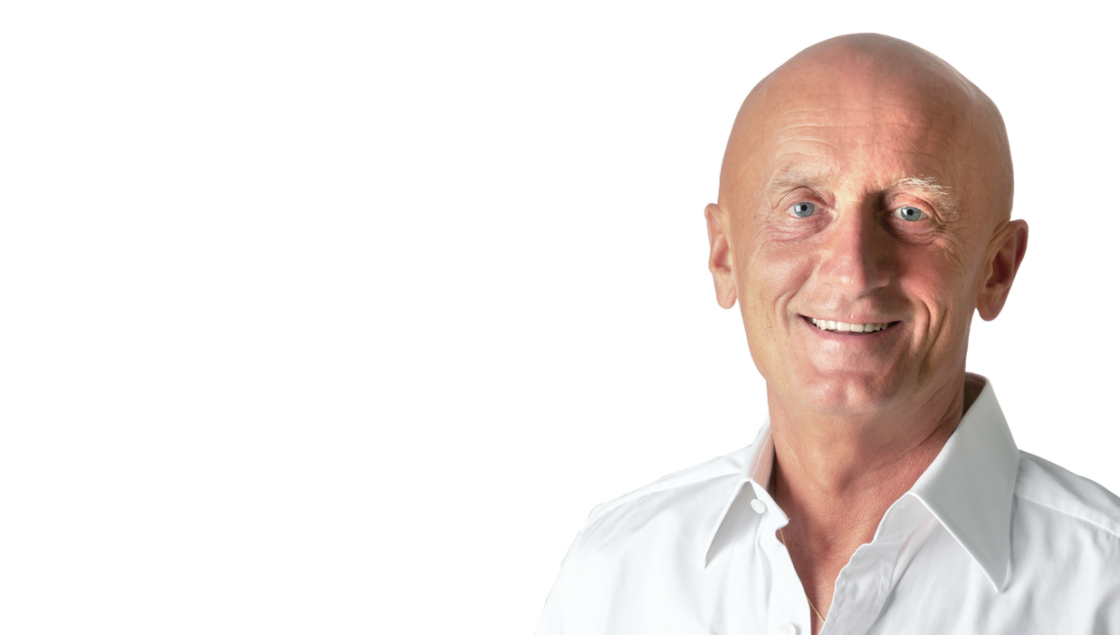Ivo Valenta: We’ve Always Had the Courage to Invest
During the ICE trade show in London, we had the opportunity to talk with Ivo Valenta, the founder of the Synot Group. Ivo Valenta shared insights on what determined the group’s success, its successful business transformation, and future plans.

You’ve been in the industry for a long time, and since the founding of Synot, a lot has changed. How do you view the changes that have occurred in the industry over this time?
Ivo Valenta: I started in gambling in 1989 when I brought the first machines from Germany. Synot was founded in 1991, so it’s been many years since then. The change is enormous, both in terms of technology, people’s way of thinking, but let’s also remember that the internet came along. We started with reel machines and gradually moved to more modern models.
Changes happened mostly ten to fifteen years ago because many new large companies appeared. Small ones stopped producing, distributing. Even trade shows, everything has changed a lot, and the market started to be divided among a few large manufacturers – Novomatic, EGT, IGT, and Synot, which also began to make its presence more felt.
We were simply a local company that supplied only Central and Eastern Europe. Today, Synot stands at a great crossroads, when its paths also lead to other continents. Today, we have here 120 employees from our companies, who are here at the trade shows, viewing products, having business meetings, so the difference is huge.
There were many different companies on the market. Not all survived. What decided that Synot survived, developed, and went online?
Maybe because we’ve always had the courage to invest. We weren’t afraid of new products, we had good partners, produced our own products, had good distributors. So, when we created our own products, we also looked at online, because we knew there was a perspective for this industry’s development.
We managed to find interesting people and opened offices in Bratislava, in Velke Mezirici, and in Uherske Hradiste, so we started to develop online in three cities.
Online casino, online business…, today, I think it was a very strategic decision about five years ago when we decided to do it. Today, it would be too late. We’ve come a long way in these five years, a very long way and starting with about fifteen people, today we have about three hundred people in “development”, and there will be more, we will be hiring new people. I think the vision of having about 400 people in online department is realistic.
How big a part of Synot’s business is online, and how much is still land-based?
At the moment, it’s about 50/50, and we believe it will continue this way because even if online grows, we have plans today that we should also develop in land-based – quickly, drastically. We plan to increase sales, rent of machines, and production by 50% each year in land-based, and we have the same ambitions also in online.
Which markets are now particularly attractive?
The Balkans are attractive, Slovakia is very attractive. The regulatory framework in the Czech Republic presents significant challenges. Brazil turns out to be very interesting as well as other South American countries. We plan to enter the USA as well, but it’s a long licensing journey and in terms of product preparation. It will be at least a year or two before we make our first steps there, and we prefer to be well-prepared rather than enter unprepared.
Are regulations currently a big obstacle to business development? Was it easier before?
In my opinion, the law is overregulated. That’s why I talked about markets like the Balkans, where there is not such overregulation yet. And we see ourselves that there isn’t so much black business there. It used to be said that in the Balkans and in those regions, there was a black market, but now it’s in the past. On the contrary, in those European Union countries, where there are many regulations, illegal parlors start to appear, and the black market begins to grow – which is bad but not surprising.
If we force these players and everyone to comply with all necessary regulations, it’s obvious that the player will choose a simpler form, where no one limits them. And it’s a shame for the state because the state loses when the player is in the black zone.
What about Synot’s land-based products, are they more targeted to casino customers or the so-called “street”? Or maybe these products are universal for every type of customer?
We already serve both “street” and casinos, so we have machines in both verticals. But yes, Synot has been more focused on the “street” all the time, we understand it best and have had the most success there. In the last two or three years, however, we started supplying them to casinos as well, so we have experience here too, gained experience, got new people, took information from casino operators and now we are starting to succeed in producing machines for casinos as well.
